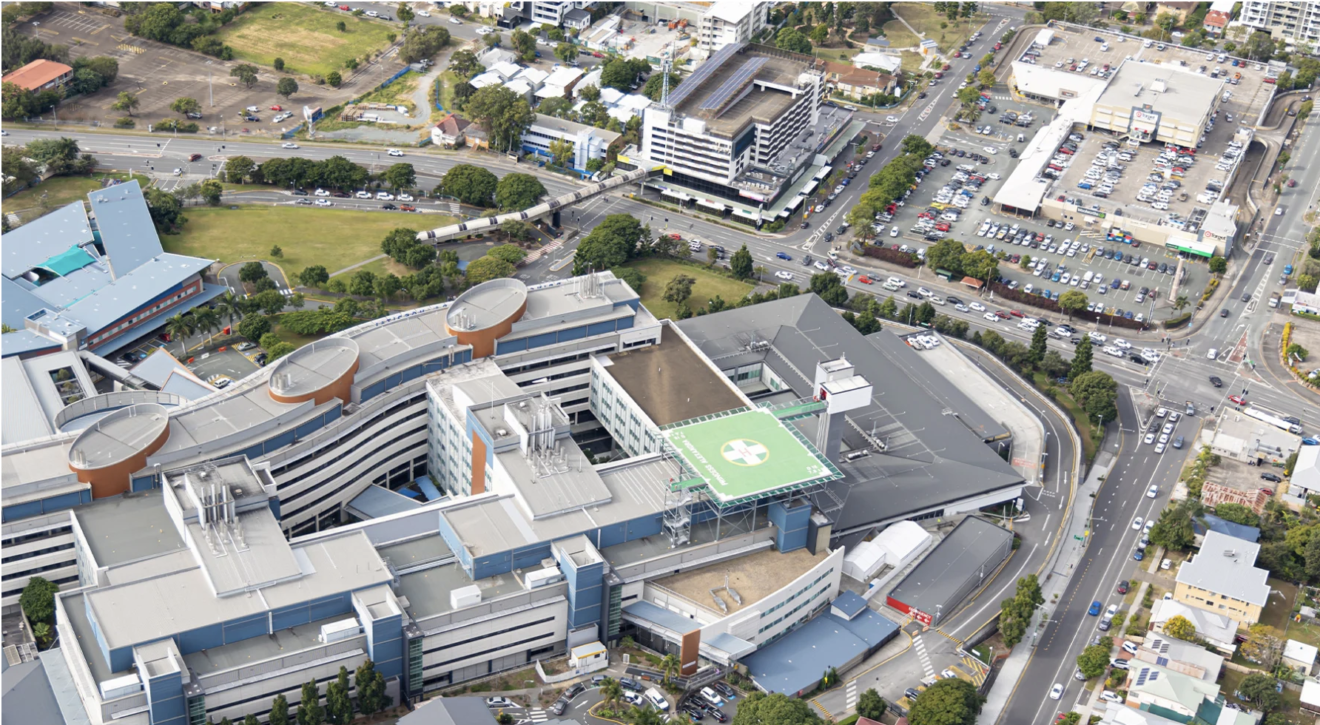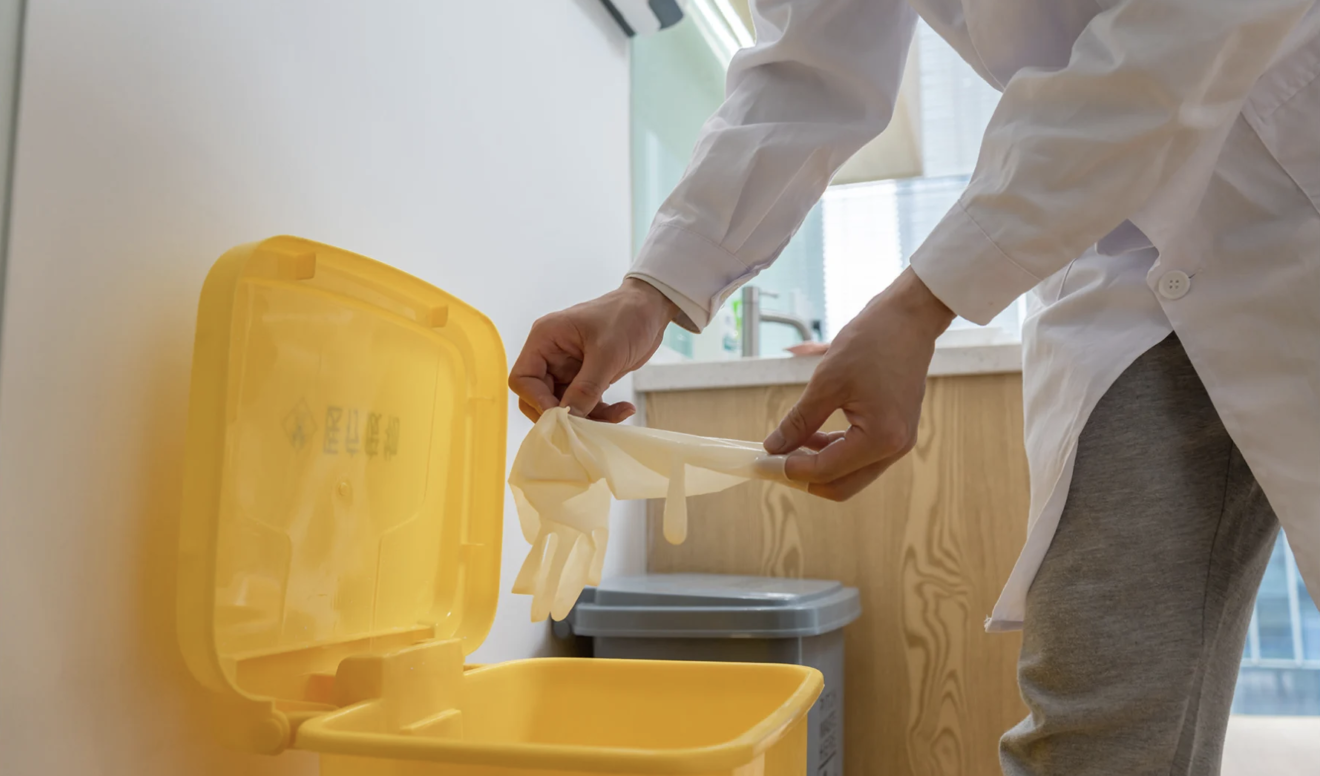

Climate change is the biggest health issue facing the planet. Healthcare professionals deal with the outcomes, but can also be part of the solution.
Healthcare is responsible for between four and five per cent of global greenhouse gas emissions; if it were a country, it would be the fifth largest emitter on the planet. Australia’s healthcare sector is one of the largest emitters per capita, with an estimated 35.8 million tonnes of carbon dioxide equivalent emissions annually, equating to seven per cent of Australia’s total emissions.

Healthcare professionals and students are well-placed to lead the charge to drive climate action. Clinicians are driven by evidence-based practice, have expertise in communication and research translation, have broad influence and are respected messengers and educators.
To accelerate action in this area, University of Melbourne academics and clinicians are leading the Climate CATCH (Collaborative Action for Transformative Change in Health and Healthcare) Lab.
World Earth Day 2024 has Planet vs Plastic as its key focus. In 2015 plastic production was responsible for approximately four per cent of global GHG emissions, which is expected to almost quadruple to 15 per cent by 2050.
Only about nine per cent of all plastics ever made have been recycled. Plastic is abundant in medical products and recycling medical plastics is challenging for many reasons including infection prevention concerns, complex material combinations and a lack of processing and waste-management infrastructure.
Additionally, many materials used in plastic production, and plastic by-products, are highly hazardous or toxic, causing an increased risk of developing cardiovascular and respiratory diseases, and various types of cancer.
Single-use medical items produce large amounts of waste and reducing the use of these has become the focus of many clinicians.
The Minderoo Foundation has recently released the Plastic Waste Makers Index, highlighting key interventions to help facilitate change in reducing single-use plastic waste and its associated greenhouse gas emissions.

There is growing support for the healthcare sector to urgently address its carbon and environmental footprint with Australia’s first National Health and Climate Strategy vision including “a sustainable, high quality, net zero health system”.
Healthcare professional groups have also called for net zero healthcare with the Australian Medical Association (AMA), Doctors for the Environment Australia (DEA), the Australian Nursing and Midwifery Federation (ANMF) Victoria and others endorsing the healthcare sector decarbonisation targets of net zero by 2040, with an 80 per cent emission reduction target by 2030.
Healthcare professionals bear the responsibility of considering the environmental impact of clinical practice, while also striving to maintain and improve health and wellbeing.
However, a much larger issue is at hand. Climate change is widely considered to be the biggest health threat of this century. Fossil fuels are the main driving force behind greenhouse gas emissions and climate change – responsible for over 75 per cent of global emissions.
Climate change directly and indirectly impacts health through extreme weather events and threats to clean air, safe water, sufficient food, freedom from disease and secure shelter. Air pollution from fossil fuels causes nearly 9 million deaths per year globally.
Many Australians suffer from eco-anxiety, particularly those with direct experiences of climate change events like bushfires.
Climate action from the healthcare sector can therefore reduce its environmental impact whilst mitigating the profound physical and mental health consequences of climate change.

In 2023, the Climate Catch Lab led a University-wide submission to the Australian Government’s National Health and Climate Strategy, which emphasised the need for a sustainable, decarbonised healthcare system that was equipped to respond to the growing impact of climate change on the health and wellbeing of Australians.
The University of Melbourne and affiliated hospitals, healthcare providers, medical research units and partners are leading the way to decarbonise healthcare and reduce plastic waste, including programs to reduce plastic waste (eg from Personal Protective Equipment – PPE) and a world-first initiative to recycle medical PVC into new products in Melbourne.
To support this, the new University of Melbourne Australian Healthcare Carbon Lab (AhrC Lab) will facilitate life cycle assessment research and organisational carbon footprinting to inform low carbon treatment pathways.
Action-focused education is key to enabling the clinical workforce to understand, manage and mitigate the health effects of climate change and apply the principles of environmentally sustainable healthcare.
In 2023, the University launched the Graduate Certificate in Climate Change and Health to build leadership in this area and medical students have recently led the University’s contribution to the International Planetary Health Report Card.
Climate and sustainability principles are also being integrated into the Australian medical education standards.
As healthcare professionals, it is our duty to protect and maintain health. We can do this by being strong advocates for climate action and getting ‘our own house in order’. Inaction from the healthcare sector is estimated to result in a tripling of the healthcare’s global carbon footprint by 2050.
Let’s work together to decarbonise healthcare and cut the waste.